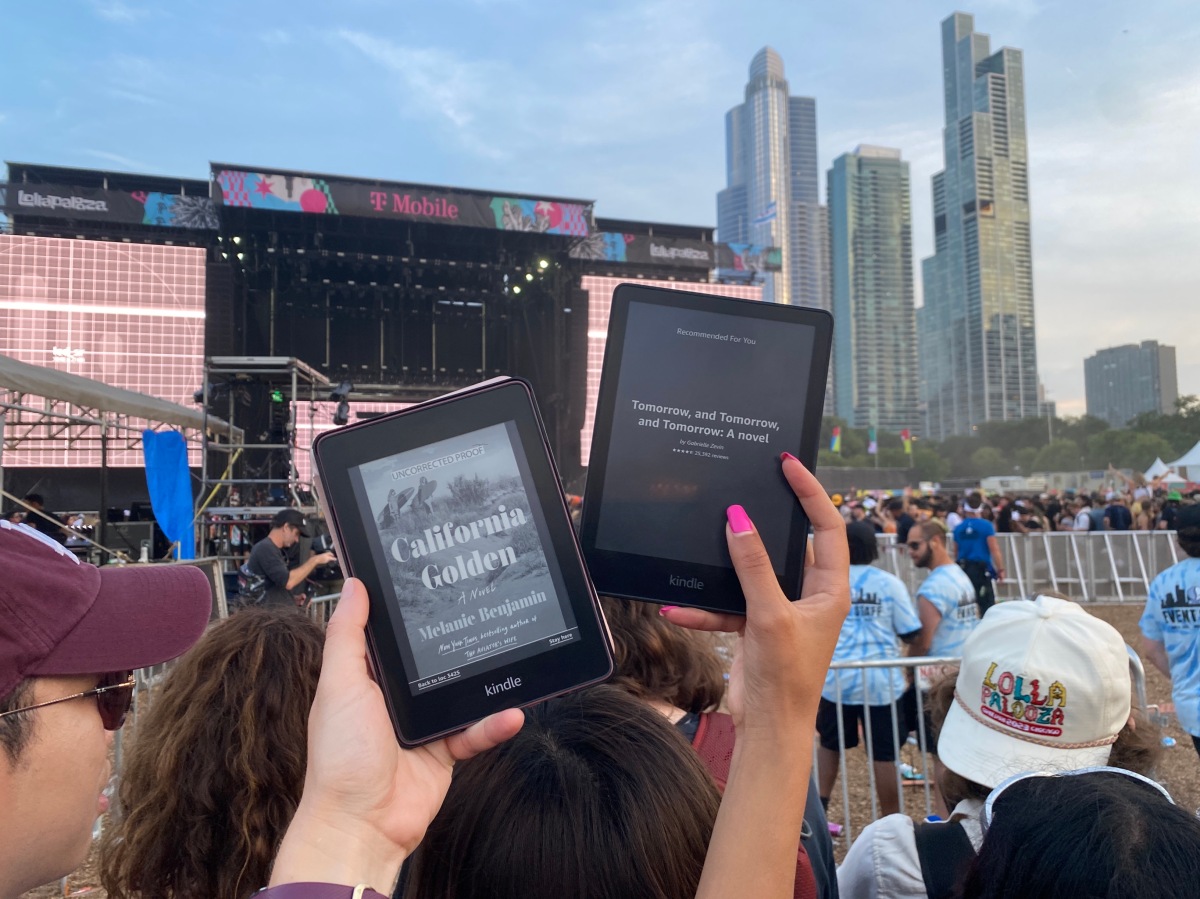States
Melanie Benjamin’s New Novel ‘California Golden’ Explores Racism And Surfing Culture

Melanie Benjamin’s New Novel ‘California Golden’ Explores Racism And Surfing Culture
In her newest work, “California Golden,” renowned novelist Melanie Benjamin explores racism and 1960s California surfing culture. Benjamin’s work illuminates the various problems of surfers of color in that period via a tale that successfully weaves together numerous personalities.
In the late 1960s, in Malibu, Carol Donelly and her two neglected kids, Mindy and Ginger, live interwoven lives. Benjamin skillfully depicts how personal aspirations affect family connections and sacrifices.
Benjamin’s portrayal of Jimmy Cho, a Hawaiian contending with white Californians’ cultural appropriation of surfing, highlights the surfing world’s racial conflicts. “California Golden” questions the sport’s dominant narratives and recognizes underrepresented populations’ achievements, particularly in the backdrop of Black surfing history’s erasure.
Melanie Benjamin said in an exclusive interview that her story illuminates the frequently disregarded realities of non-white surfers. “The book aims to confront the historical injustices and biases prevalent in the surfing culture of 1960s California,” they said. “It seeks to highlight the resilience and struggles of individuals like Jimmy Cho, whose stories have long been marginalized and erased from the dominant narrative.”
As the literary world anxiously anticipates “California Golden,” Benjamin’s profound investigation of race relations and riveting representation of surfing’s hidden tales has grabbed notice. The novel’s topical storyline emphasizes the need to recognize and celebrate varied perspectives and experiences, pushing for more inclusive and fair representation in the surfing community and society.
Race And Surfing In 1960s California
Melanie Benjamin’s book “California Golden” exposes 1960s California surfing’s hidden racial tensions. The novel explores racial relations via Jimmy Cho, a Hawaiian fighting white Californians for surfing. Benjamin accurately describes the enigma of white California teens dominating a Polynesian sport, emphasizing cultural appropriation. This story highlights the difficulties of non-white surfers to be accepted in a predominantly white community.
1960s Racism And Personal Relationships
“California Golden” explores 1960s California’s racial tensions and how racism affects people’s relationships. Jimmy Cho and others of color encountered racial prejudice and discrimination, as did many throughout that time. Benjamin expertly depicts how racial difference affects character dynamics and identities. The story explores the complicated nature of human interactions against the backdrop of racial oppression, prompting readers to consider how systematic racism affects personal goals and emotional well-being.
Strength And Empowerment In Adversity
In “California Golden,” Black heroes overcome struggle and triumph against bigotry. The narrative highlights resilience and self-empowerment in overcoming institutional hurdles by following Jimmy Cho in the predominantly white surfing culture. Benjamin’s story emphasizes representation and cultural acknowledgment and shows disadvantaged people’s struggle to regain their historical place. The novel’s protagonists’ tenacity teaches readers to recognize the fortitude needed to confront racial biases and find a place in a society that marginalizes Black voices and experiences.
History And Systemic Racism In 1960s California
To understand racism in “California Golden,” one must analyze 1960s California’s widespread racial inequality and social instability. During this time, racial segregation and prejudice permeated society, including surfing. The story illustrates the widespread discrimination and exclusion that marked non-white lives, highlighting the systematic problems communities of color confront in expressing their proper presence in predominately white areas. Benjamin forces readers to face institutional racism’s lasting influence on societal norms and individual experiences by contextualizing the tale in history.
Read Also: Racial Bias And Gun Restrictions: Black Gun Ownership Resilience
Cultural Appropriation And Black Surfing Contributions Erasure
“California Golden” critically investigates cultural appropriation and the erasure of Black surfing culture contributions. The narrative highlights Black surfers’ historical marginalization and accomplishments via Jimmy Cho. Benjamin’s story emphasizes the necessity of respecting Black surfers’ contributions to surfing’s cultural diversity. The novel encourages readers to reevaluate prevailing narratives and actively work to amplify marginalized voices to create a more inclusive and equitable surfing culture and beyond by highlighting the erasure of Black narratives.
Inclusion And Black Women Surfers’ Lives
“California Golden” delves at Black women surfers’ intersectional experiences in a white and male-dominated sport. The story explores how Black women navigate social expectations and pursue their hobbies despite overlapping racial and gender barriers via Carol Donelly. Benjamin’s story illuminates Black women surfers’ hardships and tenacity, shedding insight into surfing’s identity and portrayal. By focusing on Black women surfers, the story teaches readers to appreciate the complexity of prejudice and the significance of elevating varied perspectives to create a more inclusive and inspiring place for everyone.












You must be logged in to post a comment Login